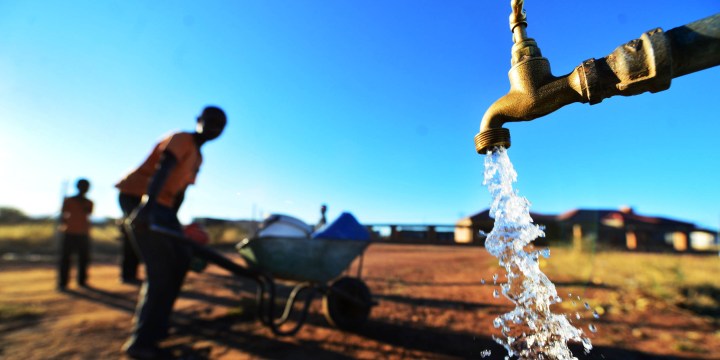Op-Ed
The sanitation revolution is here: International mega-event on our doorstep

There is growing recognition that climate change will put greater constraints on sanitation than drinking water and disrupting this sanitation environment with smart sanitation solutions and service models are the kind of transformation which is required.
Speaking at the launch of the Safe Sanitation Initiative last year, President Cyril Ramaphosa noted, “the United Nations Development Programme estimates that, globally, there are more than 2.4 billion people who do not have access to basic sanitation like toilets and latrines”. He further went on to mention, “by finding innovative solutions to a challenging problem, we will not only be making our schools safer and the lives of learners better, but we will be opening new possibilities for environmentally sustainable sanitation”.
Indeed, the Water Research Commission (WRC) and its partners, including the Bill & Melinda Gates Foundation and the Sustainable Sanitation Alliance, among others, are pursuing new possibilities in the sanitation revolution. We have on our doorstep an opportunity in the form of the 5th International Faecal Sludge Management Conference (FSM5), a concept pioneered by the WRC, which is going to be convened on the 18 to 21 February 2019 in Cape Town at the Cape Town International Convention Centre (CTICC). This is the only international sanitation-dedicated mega-event focusing on challenges in developing countries which gathers some of the greatest minds and experiences across the globe.
Historical inequities have resulted in large parts of the South African population having inadequate access to sanitation facilities and services. South Africa’s vision 2030 goal is to provide universal access to piped water and access to hygienic toilets, thereby contributing to a healthy population and environment which will ultimately lead to a stronger economy.
South Africa has acted purposefully to attain this goal through government-sponsored programmes which aimed to provide basic sanitation services to all, including poor and unserved communities. Our national percentage of households with access to improved sanitation facilities rose from 62% in 2002 to 80% in 2015 and reaffirms the government’s commitment to providing access to this basic human right. This journey has not been easy, and we continue to have technical challenges.
Though significant progress has been made since the democratic dispensation of 1994, many new challenges have emerged with a growing aspiration for better solutions. The binary model, of the gold standard in the form of full flush toilet vs hole standard in the form of pit latrines, for rich and poor areas respectively, has not closed the gap but created a myriad of new operational challenges. Compounding this is the fact that South Africa is a water-scarce country and the universal access to waterborne sanitation may not be realised due to the prohibitive costs and the availability of water. The deeper problem is that there is no sanitation market, especially for the poor – it happens to be a monopolised public good with minimal innovation uptake.
There is a call and recognition for serious transformation in the sanitation sector to tackle the binary technology problem. Our destiny on sanitation should not be attached to the flushing of human waste, we have to buck this trend for a secure water and sanitation future. There is growing recognition that climate change will put greater constraints on sanitation than drinking water and disrupting this sanitation environment with smart sanitation solutions and service models is the kind of transformation which is required.
It was at the National Sanitation Summit in 2015, hosted by the Department of Water and Sanitation, where the then Deputy President Cyril Ramaphosa issued a clarion call “it’s not all about flushing”.
FSM5’s additional uniqueness is that it will be jointly hosted with Africasan, an initiative of AMCOW, and the combined aim is at accelerating best practice and sanitation coverage across Africa.
The value the African Minister’s Council on Water brings in joining forces with FSM is indicative of the political will that is now creating synergies between the technical and academic expertise of the sector to ascertain that the sanitation transformation does meet the UN’s Sustainable Development Goals (SD) targets.
All of this to date is a bold and ambitious attempt to transforming South Africa’s and Africa’s sanitation future and hopefully that of many cities around the world. I believe that this will be the new gold standard in the future which will have universal access to sanitation. Furthermore, the net benefit will also be the saving of nearly 50% freshwater and the elimination of pollutant pathways to that of beneficial by-products. This transformation will fix a new market for sanitation. It’s ambitious and real and will require continued behaviour change at a political, social, technical and operational level to sustain our future water and sanitation security.
This is a privilege for South Africa, which needs to be exploited in that it will provide the opportunity for sector professionals, governments, policy-makers, utilities, development partners, investors, industries and service providers to coordinate, develop and share learning to provide affordable and workable solutions at scale. DM
Jay Bhagwan is an Executive Manager at the Water Research Commission.

















 Become an Insider
Become an Insider